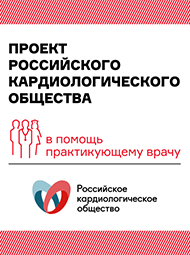IBD Tied to Higher Risk for Heart Trouble
Inflammatory bowel disease (IBD) was associated with increased risks for stroke, myocardial infarction (MI), and ischemic heart disease, particularly in women, researchers reported.
A meta analysis and systematic review showed increased odds for cerebrovascular accidents (adjusted odds ratio 1.18, 95% CI 1.09-1.27) -- including ischemic and hemorrhagic stroke -- and for ischemic heart disease (OR 1.19, 95% CI 1.08-1.31), according to Siddharth Singh, MD, of the Mayo Clinic in Rochester, Minn., and colleagues.
These risks were specifically elevated in women versus men, with women having a 28% increased odds of cerebrovascular events (95% CI 1.17-1.41), and a 26% increased odds of ischemic heart disease (95% CI 1.18-1.35), Singh said in a poster presentation at the American College of Gastroenterology meeting in San Diego.
While the authors called the the increased risks "modest," they suggested that "these patients should be routinely counseled on aggressive risk factor modification."
Past research has shown associations between IBD and bone loss, as well as precancerous serrated adenomas.
Other research has linked IBD to elevated clot risks, pulmonary embolism, and coronary artery disease.
In an accompanying statement, the authors noted that risk modifications for patients with IBD included physician-guided management of the condition, stress reduction, diet, moderate exercise, and smoking cessation.
Although the study does not clarify why risks are the way they are, it does clarify "that young patients and women with IBD disease have to care for themselves by eating healthy to avoid high blood pressure and diabetes, and avoid or quit smoking," commented Bethany DeVito, MD, of North Shore University Hospital in Manhasset, N.Y., who was not involved in the study.
Prior meta-analyses did not find an association between cardiovascular disease mortality and IBD, but the authors noted that using mortality was a poor surrogate for cardiovascular disease incidence because "with advancements in medical management and interventional strategies, mortality from MI has decreased."
Singh's group conducted a meta-analysis of nine observational studies involving more than 150,000 IBD patients from a Western population. Studies included reports of incident cases of cerebrovascular accidents or ischemic heart disease, and included a population of patients without IBD with estimates for ischemic heart disease or cerebrovascular disease. Cross-sectional studies were not included in the analysis.
They defined cerebrovascular accidents as a history of ischemic or hemorrhagic stroke and/or transient ischemic attack. Ischemic heart disease included cases of acute coronary syndrome, history of MI, and/or history of angina.
Risks for cardiovascular morbidity were evaluated with IBD, along with estimates specific to patients with Crohn's disease and ulcerative colitis, as well as to sex and age.
Confounders included age, sex, race, cigarette smoking, body mass index, diabetes history, hypertension, hyperlipidemia, personal and family history of either risk condition, and aspirin use.
Younger patients (less than 40- to 50-years-old) had significantly greater risks for cerebrovascular accidents versus older patients (aOR 1.84 versus OR 1.11, P=0.01).
In patients with Crohn's disease, the aORs were 1.25 for risk of cerebrovascular accident and 1.08 for risk of ischemic heart disease. In those with ulcerative colitis, the aORs were 1.13 and 1.15, respectively (P=0.10 and P=0.75 for between group differences).
IBD was not associated with risk for peripheral arterial disease (aOR 1.15, 95% CI 0.96-1.38), nor were there associations with study setting (hospital versus population) or geographic location (North America versus Europe).
The authors suggested that the increased risk among younger IBD patients may be due to more severe inflammation in the population. They also noted that inflammation appears to play a greater role in female patients than in males.
Source: www.medpagetoday.com


.jpg)



